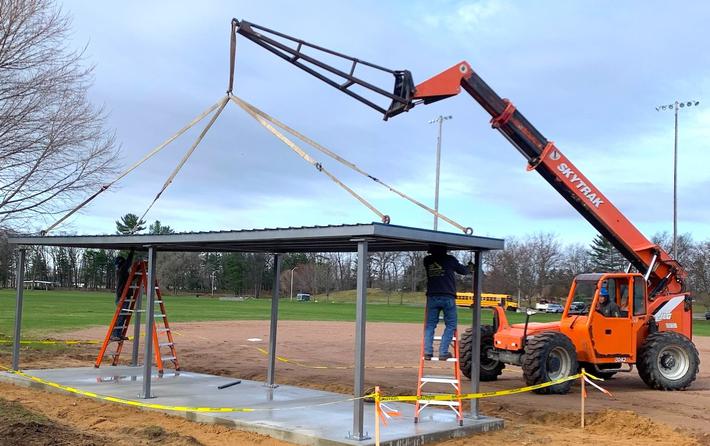All the Lonely People
Guest Opinion
By Greg Holmes | Aug. 5, 2023
Do you feel lonely, isolated, and have few, if any, friends? If so, you are part of a growing segment of the population that reports having the same problem. In fact, it has been estimated that at any given moment, upwards of 50 percent of people in the United States experience feelings of loneliness.
The Surgeon General of the United States, Dr. Vivek Murthy, recently issued a health advisory proclaiming that loneliness is at an “epidemic” level that has significant health implications. It has been estimated that a lack of interpersonal connections can increase the risk of health problems comparable to smoking 15 cigarettes per day or drinking six alcoholic beverages a day. These health issues include a higher risk for depression, heart disease, and premature death.
What exactly is loneliness? First and foremost, it is a subjective experience, and therefore it is difficult for others to identify, much less measure. Basically, loneliness is thought to be the difference between the social connections you would like to have, or feel you need, versus the ones that you actually have.
So why has loneliness increased? The fact of the matter is that our direct contact with people has been gradually disappearing for years. If you are an older reader, you can remember the day when a gas station attendant would greet you, fill up your car, and clean your windshield. Those days are long gone. The attendant has been replaced by a credit card reader.
Today, self-service and technology continue to dominate our interactions with others. Self-checkout lanes at grocery and other stores eliminate the need to wait in line and having to deal with wage-earning cashiers. Personally, I choose to shop at a grocery store that does not have a self-checkout option. I enjoy talking with the cashiers, often addressing them by name.
Why? Two reasons: One, I still like talking with people, and two, most people like hearing their name. In fact, MRI imaging of the brain has shown that different regions of the brain light up when a person hears their own name versus hearing someone else’s.
What about online shopping? You don’t have to deal with anyone. Simply search for your item and the app will take care of all the rest. No driving to the store anymore. No muss, no fuss, no people.
But what if you need to talk to a real person, a so-called “customer service representative?” Good luck with that! You will more than likely be sent back to the company website or have to listen to innumerable options in your desperate attempt to talk to an agent.
The COVID-19 pandemic served as a major accelerant in our loss of in-person contact. People stayed at home to work virtually; office buildings stood at less than half occupancy. Working from home was attractive to many as they could avoid long, costly commutes and the hassle and high cost of childcare. Understandably, many people were reluctant to return to their offices.
On the other hand, one-fourth of workers, those who tended to be young, single, or empty nesters, were eager to come back to the office. Why? They tended to view the office as a social outlet. In other words, they missed people.
Another factor associated with the increase in loneliness over the past several decades has been the meteoric rise of social media. On one hand, we may seem more connected than ever; 70 percent of adults in the U.S. have a social media account, and the average user has seven. The typical Facebook user has 388 “friends.”
However, studies have shown that the more time spent on social media is associated with a higher level of loneliness. “Connections” made through social media can actually increase depression and anxiety in teenagers as they compare themselves to ideal imagery posted by celebrities and other users. One study found that teens who reduced their social media use by 50 percent had a significant increase in self-esteem.
If we don’t have friends, no worries. We will soon be able to use AI to create them. In Kazuo Ishiguro’s 2021 novel Klara and the Sun, parents hire android robots to be Artificial Friends for their children. Preposterous? Think again. Artificial intelligence apps such as Eva AI already exist, promising to create “…a virtual AI partner who listens, responds, and appreciates you.”
Isn’t that what we all want from a “real” friend, someone who listens and appreciates us? A psychotherapy client of mine once confided to me that if he only had someone to listen to him, he wouldn’t need a therapist. I believed him. I’ve often wondered if loneliness is an underlying factor in some psychosomatic illnesses.
To develop and maintain a friendship is hard work. It requires considerable time and effort along with the courage to be honest and vulnerable. However, the effort is more than worth it—it’s essential to our well-being.
As the English poet William Blake wrote, “The bird a nest, the spider a web, man friendship.”
Greg Holmes lives and writes in Traverse City.
Trending

Meaningful, Practical, Magical
Sarah Snider, owner of Poetess and Stranger, has poured nearly three decades of experience into the creation of her Petosk... Read More >>
Restoring Sleeping Bear Inn
It won’t be long before Glen Haven visitors will be able to experience waking up in the oldest hotel in the National... Read More >>
Dream Team in the Dugout
Northern Michigan’s Dream Team, a co-ed baseball league for youths, teens, and young adults with disabilities, is ge... Read More >>


